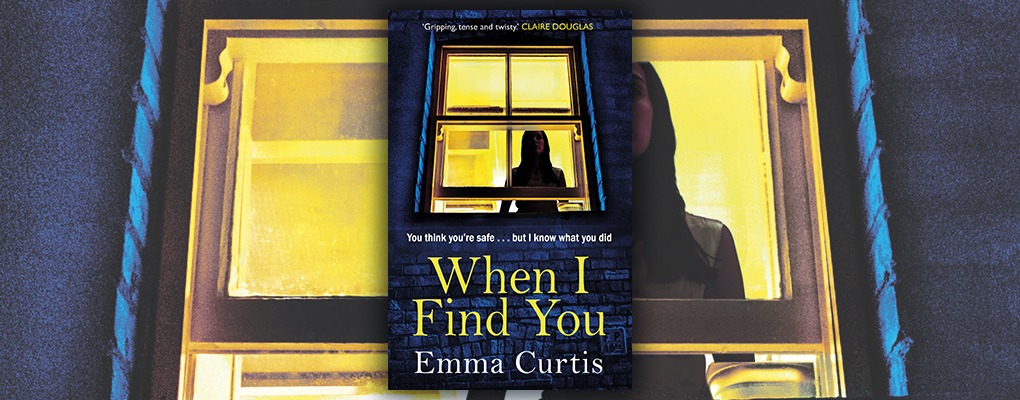Books
What if someone exploited your greatest weakness?
When I Find You by Emma Curtis features a protagonist with face-blindness – an inability to recognise faces. Here, Emma tells us how she came to explore the condition in her new psychological suspense novel.
Waking beside a sleeping stranger, Laura gets up to use the bathroom, tiptoeing through the clothes they left strewn along the corridor of her flat. In the light from the bathroom she sees a blue shirt lying crumpled on the floor. Her shock is profound because this is all wrong. The man she partied hard with last night had been wearing a pink shirt. There is no question about that because it was the colour of his shirt that helped Laura keep track of him.
The problem isn’t that Laura has a poor memory for faces, it’s that her brain is simply unable to process them. She is profoundly face-blind.
By the time she’s ready to leave the bathroom and confront him, he has already fled. Devastated and angry, but unable to prove a thing, let alone give the police a name, Laura is determined to find out who did this to her and get justice. All she knows is that he works for the same advertising agency she does.
Knowing that he is in the building, that he is watching, maybe even working alongside her, her anxiety is sky high. Laura is stretched to breaking point, tormented by a man she can’t identify, a man who she has, apparently, willingly slept with. She has no idea who she can trust, so she trusts no one. On her own, it’s difficult to keep things in perspective and all too easy to jump to conclusions. Blundering into a labyrinth of deception, a crime covered up, and an unforgivable betrayal, Laura finds it’s more than her job and her sanity at stake – her life is too.
Almost more than the crime novel possibilities, it was the strain of everyday life and the social disadvantages that drew me to face-blindness. To work with a character who lacked the ability to recognise friends and relations, let alone enemies, was a challenge I couldn’t resist. The more I researched, the more I realised how well-suited the condition is to psychological suspense. A heroine needs to be vulnerable and yet tough and determined, and that’s Laura.
I want readers to put themselves in her shoes, to understand the mental gymnastics required every time someone approaches her; to see that it can be unnerving, at times mortifying, that it can lose her friends and opportunities. There is a misconception that if they only worked harder, sufferers could overcome what is often perceived as a weakness, rather than the learning difficulty that it is. It’s why many, like Laura, keep their condition a secret. Laura would never use it as an excuse for not going for what she wants – like her job as an Art Director – but the result is a life lived in a constant state of high alert.
In a world where one in fifty-two people are thought to be face-blind, it seems extraordinary that it’s not more widely known. But when you consider how detrimental it can be to relationships and careers, it’s hardly surprising that many sufferers prefer to keep quiet.
Have you read When I Find You by Emma Curtis? Let us know in the comments below!



Please note: Moderation is enabled and may delay your comment being posted. There is no need to resubmit your comment. By posting a comment you are agreeing to the website Terms of Use.